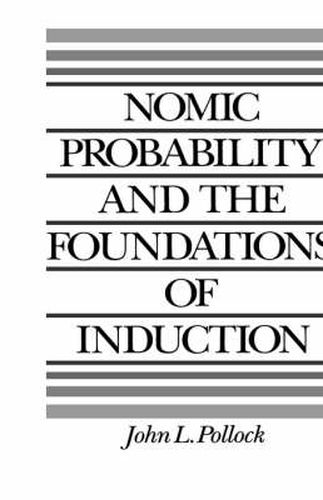Readings Newsletter
Become a Readings Member to make your shopping experience even easier.
Sign in or sign up for free!
You’re not far away from qualifying for FREE standard shipping within Australia
You’ve qualified for FREE standard shipping within Australia
The cart is loading…






In this book Pollock deals with the subject of probabilistic reasoning, making general philosophical sense of objective probabilities and exploring their relationship to the problem of induction. He argues that probability is fundamental not only to physical science, but to induction, epistemology, the philosophy of science and much of the reasoning relevant to artificial intelligence. Pollock’s main claim is that the fundamental notion of probability is nomic–that is, it involves the notion of natural law, valid across possible worlds. The various epistemic and statistical conceptions of probability, he demonstrates, are derived from this nomic notion. He goes on to provide a theory of statistical induction, an account of computational principles allowing some probabilities to be derived from others, an account of acceptance rules, and a theory of direct inference.
$9.00 standard shipping within Australia
FREE standard shipping within Australia for orders over $100.00
Express & International shipping calculated at checkout
Stock availability can be subject to change without notice. We recommend calling the shop or contacting our online team to check availability of low stock items. Please see our Shopping Online page for more details.
In this book Pollock deals with the subject of probabilistic reasoning, making general philosophical sense of objective probabilities and exploring their relationship to the problem of induction. He argues that probability is fundamental not only to physical science, but to induction, epistemology, the philosophy of science and much of the reasoning relevant to artificial intelligence. Pollock’s main claim is that the fundamental notion of probability is nomic–that is, it involves the notion of natural law, valid across possible worlds. The various epistemic and statistical conceptions of probability, he demonstrates, are derived from this nomic notion. He goes on to provide a theory of statistical induction, an account of computational principles allowing some probabilities to be derived from others, an account of acceptance rules, and a theory of direct inference.